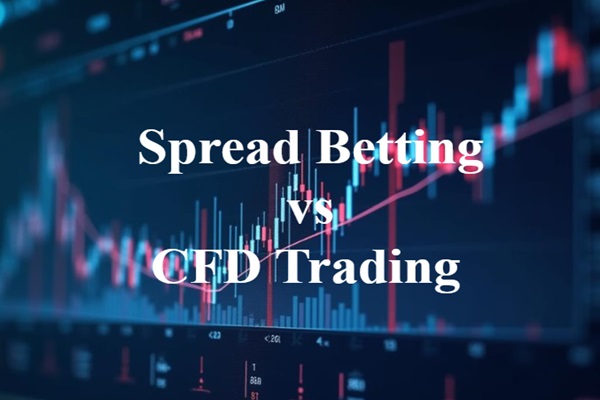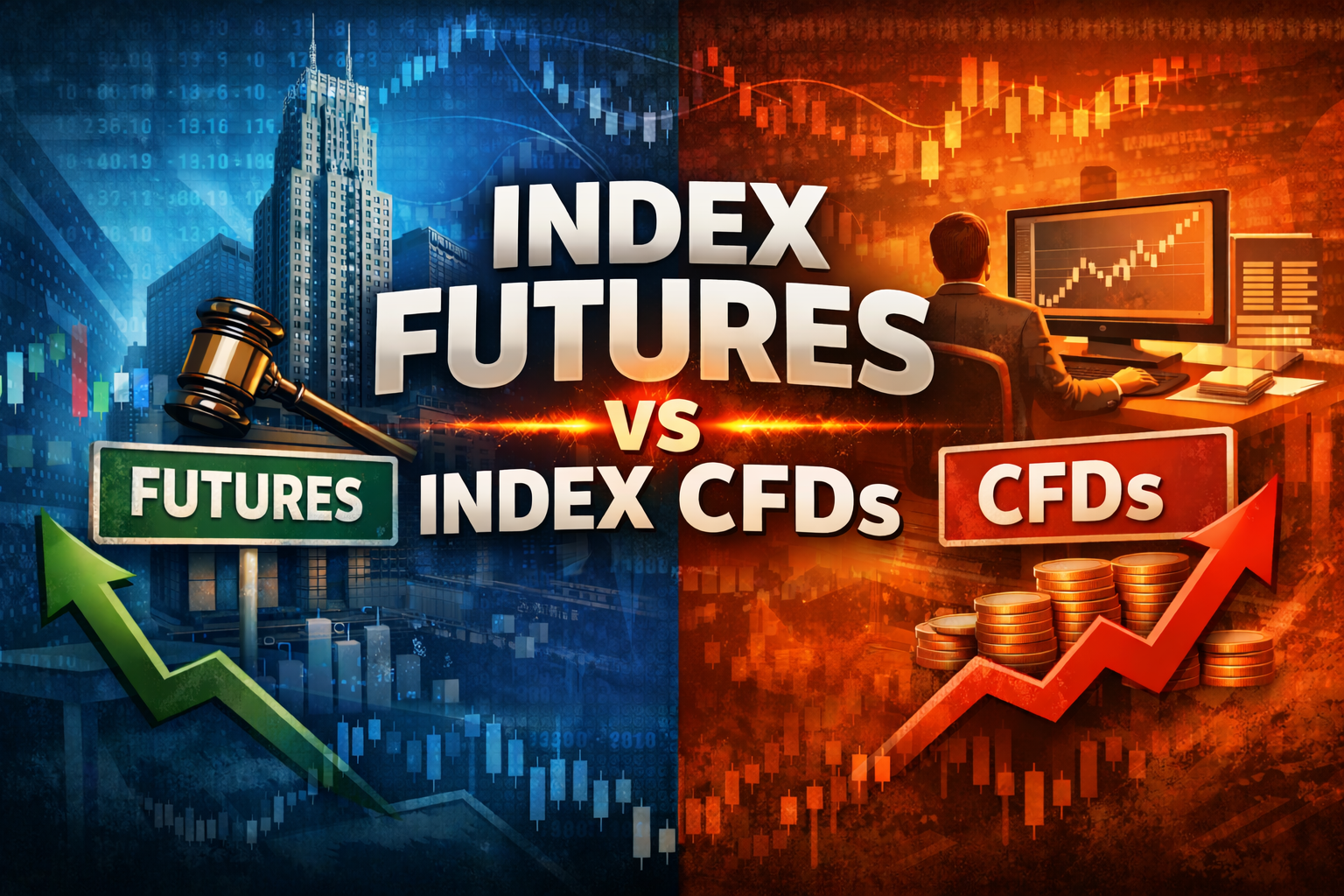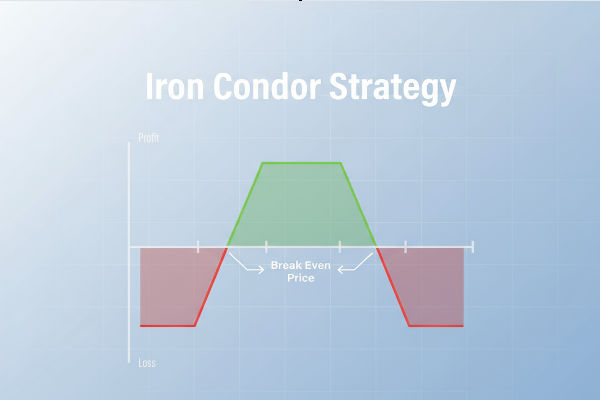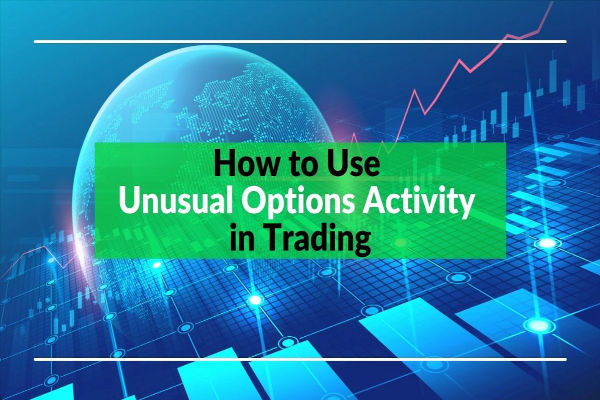If you're curious about trading without owning the underlying assets, two common options often come up: spread betting and cfd trading. At first glance, they look alike—they both allow you to speculate on price movements of things like stocks, indices or currencies—but the details matter. From tax treatment to costs and regulation, understanding the differences between them can help you choose the one that suits your trading style and goals.

Tax Treatment: Spread Betting vs. CFD Tax Implications
In the UK, spread betting stands out for one big reason—it's tax-free. Profits from spread betting aren't subject to capital gains tax, and there's no stamp duty either, as it's legally seen as a form of gambling rather than investing.
CFD trading doesn't get the same tax break. Any profits made through CFDs can be taxed as capital gains, though losses may be used to offset other taxable gains. So while you might pay tax on your profits, CFDs at least give you some room to manage your tax liabilities if your trades don't work out.
Leverage and Margin Requirements
Both products offer leverage, which lets you open larger positions with a relatively small deposit. That can amplify both gains and losses.
The exact margin requirements depend on the broker, but generally, CFDs may offer slightly lower margins than spread betting. This makes CFDs more flexible for some traders, especially those with a professional account. That said, the downside of leverage is the risk of margin calls—if your position moves against you and your account doesn't meet the margin requirement, your broker may close your trade or ask for more funds. This applies to both products, but is more commonly discussed in CFD trading.
Market Access & Asset Classes Available
When it comes to what you can trade, CFDs tend to provide broader market access. Most platforms offer a huge range—shares, forex, indices, commodities, ETFs, and even cryptocurrencies. It's ideal if you want exposure to global markets or prefer more variety in your portfolio.
Spread betting also covers many of the same instruments, particularly indices, shares, and currencies, but the range can be a bit narrower depending on the provider. For most retail traders, the difference isn't a dealbreaker, but if you're looking to trade international stocks or niche markets, CFDs could offer more flexibility.
Overnight Financing Costs
Cost structures are another area where these two products differ, especially when trades are kept open overnight.
With CFDs, there's usually a daily financing charge if your position runs beyond the trading day. This is similar to paying interest, as you're effectively borrowing money to hold the position. These costs can add up over time, particularly for swing or long-term trades.
In spread betting, overnight charges may be built into the spread—the difference between the buy and sell prices. While you might not see a separate fee, wider spreads can still affect your profits. So the cost is still there; it's just presented differently.
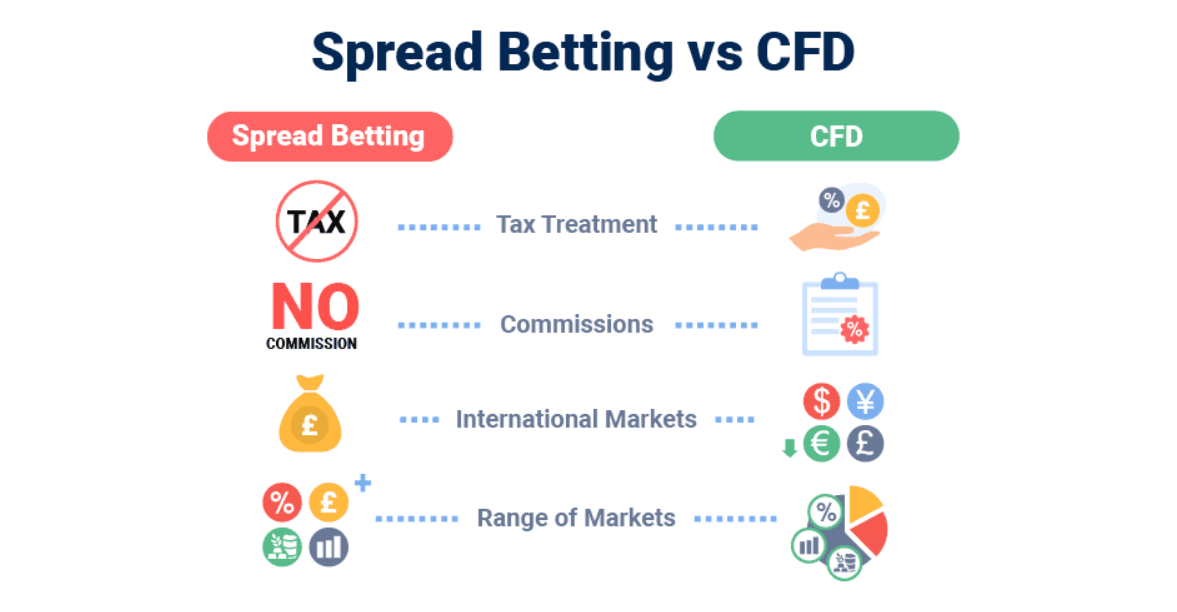
Regulation and Investor Protection
Both spread betting and CFD trading are regulated in the UK by the Financial Conduct Authority (FCA), which enforces rules to protect retail traders. Across Europe, ESMA regulations also apply, including restrictions on leverage and mandatory negative balance protection—so you can't lose more than you've deposited.
There's a subtle difference in classification, though. Spread betting is technically viewed as gambling, which affects how it's taxed and sometimes how it's advertised. CFDs, on the other hand, are financial instruments and usually come with stricter transparency requirements and client protections.
In both cases, it's crucial to trade with a regulated broker, as this ensures your funds are handled properly and you're trading under fair conditions.
Spread Betting vs CFD Trading
| Aspect |
Spread Betting |
CFD Trading |
| Tax (UK) |
Tax-free |
Capital gains tax applies |
| Asset Ownership |
No |
No |
| Leverage |
Yes (FCA/ESMA limits) |
Yes (FCA/ESMA limits) |
| Margin |
Usually higher |
Usually lower |
| Market Access |
Limited range |
Broader range |
| Fees |
Wider spreads, no explicit overnight fee |
Tighter spreads, overnight fees apply |
| Regulation |
FCA, classified as gambling |
FCA, classified as financial instrument |
| Loss Offset |
Not allowed |
Allowed |
| Protection |
Negative balance protection (retail) |
Same |
| Best For |
Short-term UK traders |
Broader market exposure |
Whether you're after the tax-free advantage of spread betting or the global reach and flexibility of CFDs, each product has its strengths. The better choice depends on what matters more to you—cost structure, tax implications, access to markets, or trading style. For anyone starting out, the key is not to rush. Use demo accounts, understand the risks, and get a feel for how each product works before committing real capital. In trading, being well-informed often matters more than being fast.
Disclaimer: This material is for general information purposes only and is not intended as (and should not be considered to be) financial, investment or other advice on which reliance should be placed. No opinion given in the material constitutes a recommendation by EBC or the author that any particular investment, security, transaction or investment strategy is suitable for any specific person.
